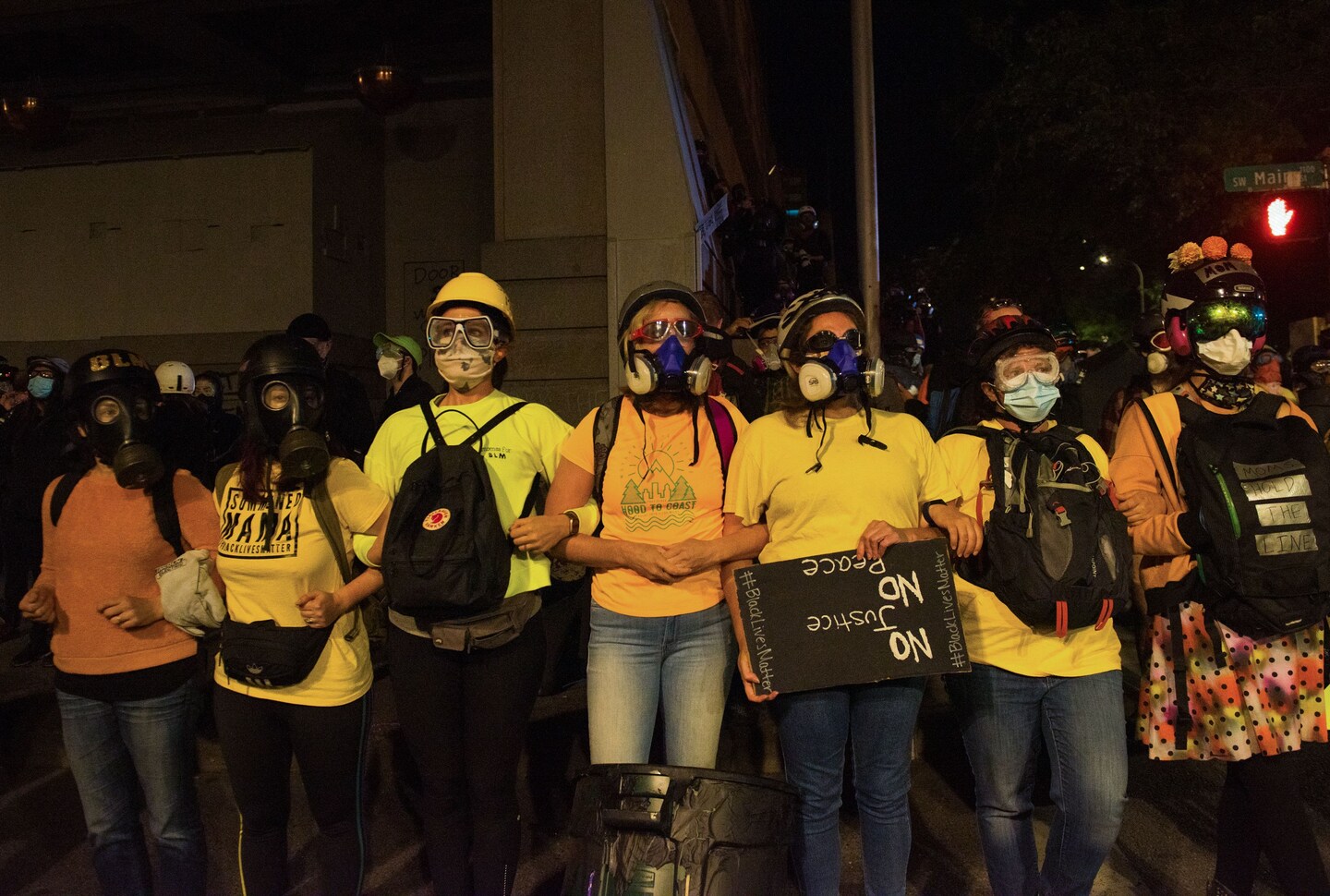How America weaponizes motherhood

She told BuzzFeed: “We are about protecting peaceful citizens’ right to protest. We wanted to look like we were going to Target, like normal people.”
They knew their presence, their maternal bodies, would make a difference. But it wasn’t just their motherhood, after all, as Barnum pointed out: Black mothers had been out there protesting injustice for more than 50 days. They had been tear gassed. But the collective cultural horror over tear gassing mothers only happened when white moms showed up.
The experience of motherhood in America is a political question just as much as it is a question of flesh. We allow white mothers a sainthood not extended to other types of mothers.
It’s so powerful a role that it was invoked to protect Sarah Sanders from criticism when comedian Michelle Wolf made fun of her eyeliner at the White House correspondents’ dinner. Kellyanne Conway has also invoked her motherhood as a shield to protect her from criticism.
Historically, white motherhood has been used as a cover for inciting racist policies, white flight and school segregation. In “Mothers of Massive Resistance,” Elizabeth Gillespie McRae lays bare how white women have used the term “mother” to justify racial segregation and Jim Crow laws.
And it’s not just women who use motherhood as a shield. Powerful men, when called out for their sexism, often resort to using their wives and daughters as evidence of their virtue. When Rep. Ted Yoho allegedly called Rep. Alexandria Ocasio-Cortez (D-N.Y.) a “f—ing b—h,” he later apologized by mentioning that he has a wife and two daughters.
Ocasio-Cortez’s response was powerful, pointing out that she, too, is someone’s daughter — a role Yoho (R-Fla.) seemed to have forgotten when degrading his colleague on the Capitol steps.
Yoho didn’t forget by accident. In America, the sanctifying role of mother is not given to everyone.
Recently, President Trump used similar pearl-clutching language to attempt to prey upon the sanctimony of white motherhood. He moved to repeal a fair-housing rule he claimed would turn nice white suburban towns into crime-ridden cities. It’s a racist appeal, one that signals that the suburban home and its idealistic purity is at threat of an angry Black mob. It’s a trope he’s used before in another way, with his multiple claims that Hispanic men are “rapists” and that Americans had to stop them from coming into our country. The dog whistle is always the purity and sanctity of white women, who get to be pure, who get to be holy and who get to be virtuous as mothers.
In America, we do not allow women to attain motherhood equally. For decades, American doctors forcibly sterilized black, Hispanic and Native American women, and women who were poor or disabled, to stop them from reproducing. Many women had no idea they were being sterilized.
America scorns a fat mother. There are fertility clinics that will refuse to work with women if they deem their body mass index too high.
In America, LGBTQ couples who wish to become parents — including, that is, mothers — face a complex legal system that often denies them their rights.
America also scorns single mothers. I learned this firsthand when I divorced three years ago. The school my children attended went from treating me as just another mom, to the principal demanding I show proof I had custody of my children when I asked for access to information about their schooling. In 2012, Rep. Glenn Grothman (R-Wis.) proposed a bill that labeled single motherhood as a form of abuse.
It’s not that you are a mother, it’s how you mother that bestows virtue. And even now, in America, virtue is bestowed only upon mothers who are white, heterosexual and married.
In Portland, national media coverage of the protests had all but dried up before the “Wall of Moms” showed up. While using the cultural cache of motherhood is a tired trope, as writer Jessica Valenti pointed out in a tweet, the activism is subversive, “turning the stereotype of motherhood on its head while also weaponizing white womens privilege around how we venerate (certain) moms.”
In Portland, white mothers standing between police and protesters is an inversion, but still an example of the power and politics of the female body.
So, when we talk about motherhood and the “Wall of Moms,” we need to talk about who is being included and excluded from that privilege. Because for better or worse, in America, motherhood is a weapon, a tool that has long been used to perpetuate systemic racism and exclusion — not alleviate it.
More reading:






